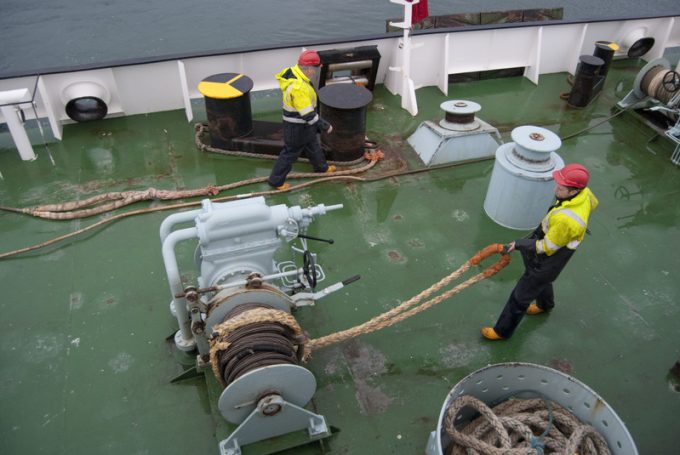Maersk fined for firing whistleblower who reported safety concerns
Maersk’s US arm has been ordered to pay more than $700,000 to an employee fired ...

As the world faces up to a dearth of seafarers, the UK government has pledged its support to do “whatever is necessary” to attract people back into the industry.
As London Shipping Week began, deputy director of maritime growth for the department of Transport Rod Patterson said the focus on seafarers formed part of a wider industrial strategy.
Some experts have put the global shortage of seafarers as high as 60,500, forecast to rise to more than 100,000 by 2025. And while the number of working seafarers is rising – last year it was clocked at 1.6m – there are pockets reporting declines, with the UK being one.
According to a study conducted by engineering consultancy Frazer Nash, numbers in the UK fell to 23,000 in 2016, with certified officers down 3% year-on-year while uncertified officers fell 2%.
The figures were even more unsettling in terms of training, with just 750 entrants for the 2015/2016 intake – a 9% drop – while UK officer training numbers were down 3% to 1,860.
Mr Patterson said this drop came despite the demand for deck and ship officers in the country, adding that the numbers in training must increase by some 1,500 to meet the demand.
“Last year, the government provided £15m for training – subsidising 1,860 cadets – but we cannot stand still on this front,” said Mr Patterson. “And while there is more we can do, employers must also take their share of responsibility – training should be seen by them as pivotal for securing their workforce’s future.”
Among the actions by government is a review of the national minimum wage for seafarers operating in UK waters, as well as an assessment of the SMarT+ proposal.
Developed by the UK Chamber of Shipping, Merchant Navy Training Board and Nautilus International, SMarT+ calls for government to double its funding for seafarer training. The DfT received the proposal in June and, according to the UK Chamber of Shipping, increasing funding from £15m to £30m a year would allow a further 400 (1,200 in total) to be trained.
Furthermore, the proposals include assertions from shipowners to commit to employing cadets after their training is completed. Cruise operator Carnival and oil producer Shell have already pledged their commitment.
Shipowners expressed concern at the shortage of available talent, with one asking where it would be able to recruit staff – and how to retain them – as more vessel capacity continues to be delivered.
Dave Rowlands from Frazer Nash said the economic benefits that UK officers brought the country’s economy far outweighed the cost of training.
“Officers provided an additional £1.1m gross value-added contribution to the UK economy compared with the average of the UK workforce,” said Mr Rowlands.
“So subsidising this training makes absolute economic sense, with a £4.80:£1 cost ratio, the economy gaining far more from officers than it contributes to their training.”
To coincide with London International Shipping Week, the UK Chamber of Shipping also released this promotional film to entice prospective cadets to look sign for a life at sea:
Comment on this article
Samuel
November 24, 2017 at 4:02 amAn interesting article, but you have missed out a few important aspects which will ensure that few British youngsters will ever join this profession –
1) The excruciatingly long hours of work (average 8-12 per day without any weekends or sunday offs) and long contracts (average 7 months, working 7 days a week on a merchant ship. Offshore vessels are an exception with high competittion)
2) The stiff competition from equally qualified and more willing to work long hours youngsters from the Philippines, Ukraine and India for the same salary (average $ 3000 for an Indian 2nd officer)
3) The high salaries for British officers (usually double to 2.5 times that of their Asian counterparts) – collectively bargained by the UK seafarers unions with ship owners